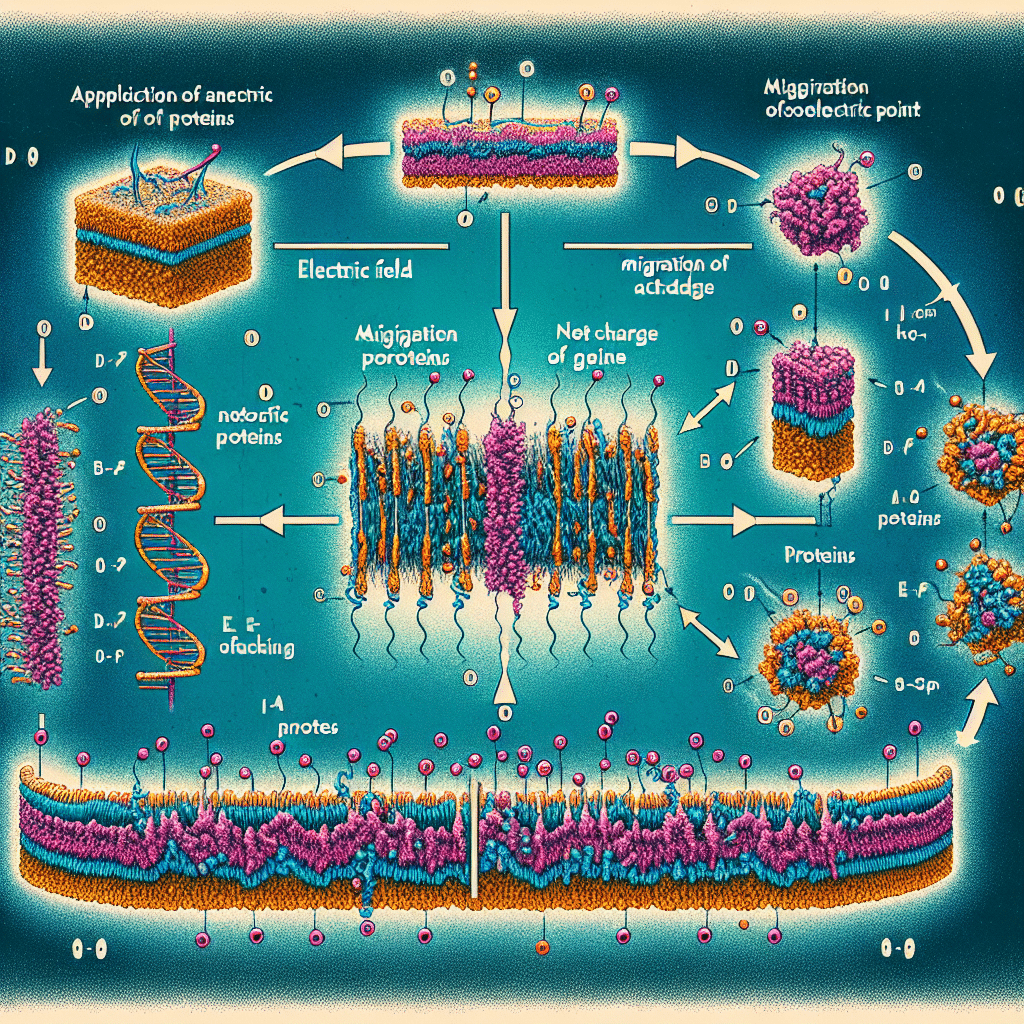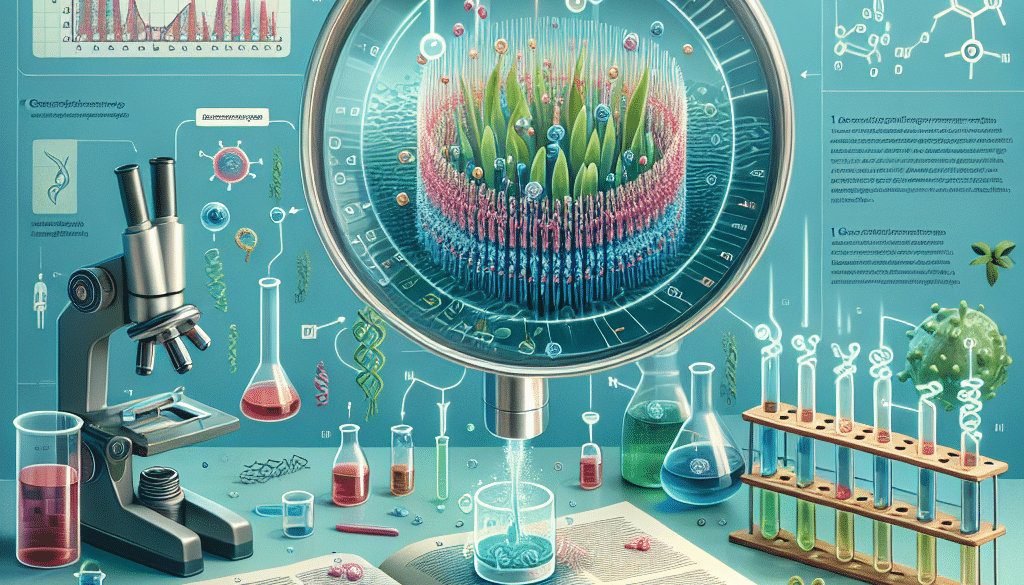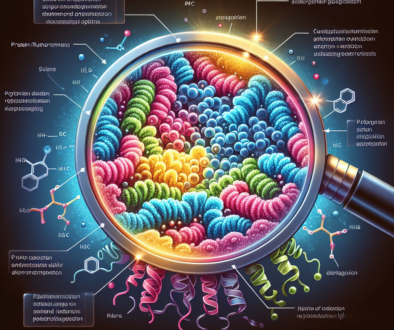Isoelectric Focusing: Mastering Protein Charge and Separation
-
Table of Contents
- Isoelectric Focusing: Mastering Protein Charge and Separation Techniques
- Understanding Isoelectric Focusing
- The Principle Behind IEF
- Components of an IEF System
- Applications of Isoelectric Focusing
- Case Studies and Examples
- Advancements in Isoelectric Focusing Technology
- Statistics and Trends in IEF Usage
- Challenges and Considerations in Isoelectric Focusing
- Conclusion: The Impact of Isoelectric Focusing on Proteomics
- Discover High-Quality Proteins with ETprotein
Isoelectric Focusing: Mastering Protein Charge and Separation Techniques

Proteins are the workhorses of the cell, performing a myriad of functions essential for life. Understanding their structure and function is crucial for advancements in biomedical research, diagnostics, and therapeutic development. One of the key techniques used in protein analysis is isoelectric focusing (IEF), a powerful method for separating proteins based on their isoelectric point (pI). This article delves into the intricacies of IEF, exploring how it has become an indispensable tool in the field of proteomics.
Understanding Isoelectric Focusing
Isoelectric focusing is a type of zone electrophoresis that separates proteins according to their pI, the specific pH at which a protein carries no net charge. At this point, the protein is immobile in an electric field, allowing for high-resolution separation. The process involves the use of a stable pH gradient established in a gel or other support medium, across which an electric current is applied.
The Principle Behind IEF
The principle of IEF is based on the amphoteric nature of proteins, meaning they can act as both acids and bases. Proteins are made up of amino acids, each with its own pKa values, contributing to the overall charge of the protein at a given pH. By applying an electric field across a pH gradient, proteins will migrate to the position where their net charge is zero, their isoelectric point.
Components of an IEF System
- pH Gradient: Created using ampholytes or immobilized pH gradients (IPG), providing a range of pH values for protein separation.
- Support Medium: Typically a polyacrylamide gel, which serves as a matrix through which proteins can migrate.
- Electric Field: Applied across the medium, causing proteins to move towards their isoelectric points.
Applications of Isoelectric Focusing
IEF has a wide range of applications in various fields, from basic research to clinical diagnostics. It is particularly useful for:
- Characterizing protein isoforms and post-translational modifications.
- Assessing protein purity in pharmaceutical preparations.
- Identifying proteins in complex mixtures for proteomic studies.
- Diagnosing diseases through the detection of specific protein markers.
Case Studies and Examples
One notable application of IEF is in the diagnosis of hemoglobinopathies, such as sickle cell anemia and thalassemia. IEF can separate and identify abnormal hemoglobin variants based on their distinct pI values. Another example is the use of IEF in the biopharmaceutical industry to ensure the consistency and purity of therapeutic proteins, such as monoclonal antibodies.
Advancements in Isoelectric Focusing Technology
Over the years, IEF has seen significant advancements that have improved its resolution, reproducibility, and ease of use. The development of immobilized pH gradients (IPGs) has been a major milestone, providing more stable and reproducible pH gradients than traditional carrier ampholytes. Additionally, the integration of IEF with other techniques, such as two-dimensional electrophoresis (2-DE) and mass spectrometry, has expanded its analytical capabilities.
Statistics and Trends in IEF Usage
Statistics show that the use of IEF in proteomic research has grown steadily over the past decades. The technique’s ability to resolve thousands of proteins simultaneously makes it a staple in the field. According to recent market analysis, the global electrophoresis technology market, which includes IEF, is expected to continue growing, driven by advancements in molecular biology and the increasing demand for personalized medicine.
Challenges and Considerations in Isoelectric Focusing
Despite its many advantages, IEF is not without challenges. The technique requires careful optimization of experimental conditions, such as the composition of the gel and the pH gradient. Additionally, proteins with extreme pI values or those that are hydrophobic may be difficult to focus. Researchers must also consider the potential for protein modifications that can alter the pI and affect separation.
Conclusion: The Impact of Isoelectric Focusing on Proteomics
Isoelectric focusing has revolutionized the way scientists analyze proteins. Its ability to separate proteins with high resolution based on charge properties has made it an essential tool in proteomics. As technology continues to advance, IEF will undoubtedly play a pivotal role in uncovering the complexities of the proteome, leading to breakthroughs in disease diagnosis, drug development, and our understanding of biological processes.
Discover High-Quality Proteins with ETprotein
If you’re looking for premium protein products to support your research or product development, consider ETprotein. This reputable Chinese protein factory manufacturer and supplier offers a wide range of high-quality organic bulk vegan protein and plant proteins. Their products, known for their neutral taste and non-GMO, allergen-free attributes, are ideal for various industries, including nutraceuticals, pharmaceuticals, and food and beverage.
ETprotein’s specialization in exporting and delivering tailor-made protein powder and finished nutritional supplements ensures that you receive the best solutions for your protein needs. Trusted by leading global brands and Fortune 500 companies, ETprotein is your go-to source for reliable and high-quality protein products.
About ETprotein:
ETprotein, a reputable protein Chinese factory manufacturer and supplier, is renowned for producing, stocking, exporting, and delivering the highest quality organic bulk vegan protein and plant proteins. They include Organic rice protein, clear rice protein, pea protein, clear pea protein, pumpkin seed protein, sunflower seed protein, mung bean protein, peanut protein etc. Their offerings, characterized by a neutral taste, non-GMO, allergen-free attributes, cater to a diverse range of industries. They serve nutraceutical, pharmaceutical, cosmeceutical, veterinary, as well as food and beverage finished product distributors, traders, and manufacturers across Europe, USA, Canada, Australia, Thailand, Japan, Korea, Brazil, and Chile, among others.
ETprotein specialization includes exporting and delivering tailor-made protein powder and finished nutritional supplements. Their extensive product range covers sectors like Food and Beverage, Sports Nutrition, Weight Management, Dietary Supplements, Health and Wellness Products, and Infant Formula, ensuring comprehensive solutions to meet all your protein needs.
As a trusted company by leading global food and beverage brands and Fortune 500 companies, ETprotein reinforces China’s reputation in the global arena. For more information or to sample their products, please contact them and email sales(at)ETprotein.com today.












